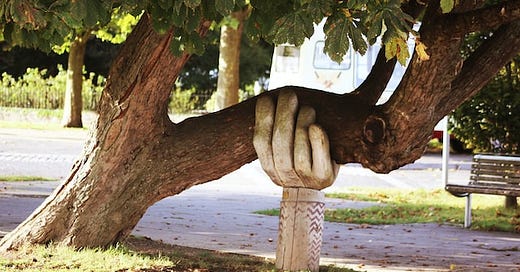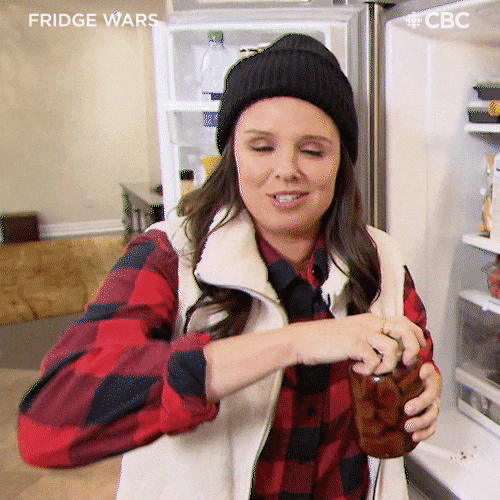“I Don’t Want to Be a Burden”: 3 Beliefs that Fuel Our Fears
We’re crackerjacks at helping, but we suck at accepting help.
To toot our collective horn (even though that sounds like a naughty euphemism), those of us who are hard on ourselves often love pitching in and assisting others. We’re crackerjacks at helping.
But we suck at accepting help. There’s a worry that bubbles up whenever someone does us a favor, takes care of us, or might have gone out of their way: “I don’t want to be a burden.”
Furthermore, our fear of being a burden makes us act in telltale ways. Here are a handful:
Don’t ask for help
Reject offers of help
Stay quiet when we could use some care or support
Push away offers of care or support
Overcompensate or over-reciprocate so we’re not in anyone’s debt
Suffer in silence so we’ll be seen as “easy”
Why does our brain worry about being a burden?
It all boils down to wanting to stay in others’ good graces. We worry we risk rejection if we’re annoying, demanding, or “too much.” If we’re burdensome, we reason, people will drop us like a chicken nugget hot from the fryer.
What can we do about it? It depends. “I don’t want to be a burden” comes in different styles, and figuring out which one fits us can help us challenge our assumptions. Here are three:
Variation #1: “I have to earn it”
This first variation of “I don’t want to be a burden” makes us think we have to earn any help, support, or care we receive. We think we need to pay into the system in order to justify getting anything out of it.
“I have to earn it” can come from our baked-in personality. Those of us who are hard on ourselves are often extra-conscientious. We naturally orient towards fairness and justice, but sometimes we can go overboard and conclude that care has to be 50/50 reciprocal.
“I have to earn it” can also be learned. You may trace this back to growing up: maybe you learned that in order to get your needs met, you had to pull your weight, whether it was taking care of younger siblings, translating a new language for your immigrant parents, or bringing home sparkly achievements.
If this is you, consider this:
Turn the tables. Do you keep score? When you help someone out, are there strings attached? Do you expect reciprocation? If the answer is no, allow yourself to question your double standard. Test drive accepting help or care like you’d accept a freely-given gift rather than an I-scratch-your-back-you-scratch mine transaction.
Variation #2: “I should be able to do it myself”
This variation of “I don’t want to be a burden” is flavored with hyper-independence. This one rings true for me. I pride myself on my capability. But sometimes I can go overboard and forget that insisting I can do things myself means I end up doing things alone.
Never leaning on anyone else means we’re never in anyone’s debt, but it also accidentally sends the message that we think no one is good enough for us to lean on.
If this is you, consider this:
Rather than being hyper-independent, what might it look like for you to be simply…independent? Please do continue taking pride in your capability. But ask, when does doing it all yourself backfire? When does stubbornly sticking to the rule of “do it myself” leave you stressed, lonely, or exhausted?
Variation #3: “People only like me when I’m ‘easy.’”
Our final flavor of “I don’t want to be a burden” is being undemanding. A client we’ll call Julie remembers when she would injure herself as a child—a knee scrape or head bump—her mother would treat it like a big inconvenience. Predictably, Julie learned that having needs—even medical needs—was a burden to others.
For you, maybe you prioritize being trouble-free for the people in your life. You worry you’ll be judged or rejected if you share your problems, need a hand, or are otherwise inconvenient, bothersome, or “too much.”
If this is you, consider this:
Recall a time you were rejected, criticized, or reprimanded for struggling or having a need. Ask yourself: in that scenario, who was acting inappropriately? Now, this isn’t just an excuse to blame your parents or partner or Aunt Jillian. But looking back from a more objective perspective can help us realize our needs for safety, love, or care—regardless of the reaction—were reasonable and appropriate.
Before we wrap up, I have a question: What other newsletters (Substack or otherwise) do you really like? If you like them, I probably will, too! Hit reply and let me know (or just say hi—I’d love to get to know you!)
Last, as the parent of two Gen Z-ers, I was particularly excited to talk with Eve Upton-Clark for Business Insider about Gen Z anxiety at work. Check out her article here.
If you received this from a friend, sign up for more at ellenhendriksen.com or right here:
Be kind to others and yourself,
Top photo credit: Neil Thomas









What if you DO expect reciprocation? Or you almost never reciprocate (for whatever reason)? For the former, I think I've been in too many relationships that were "take all, give none", and now that I'm in a situation where it seems I have great difficulty giving more than 10% on most given days, I'm terrified of being "that" person - the one who only asks for help but can't or won't help out most of the time.